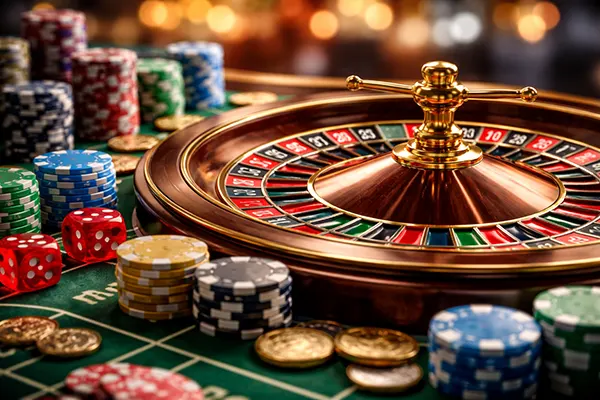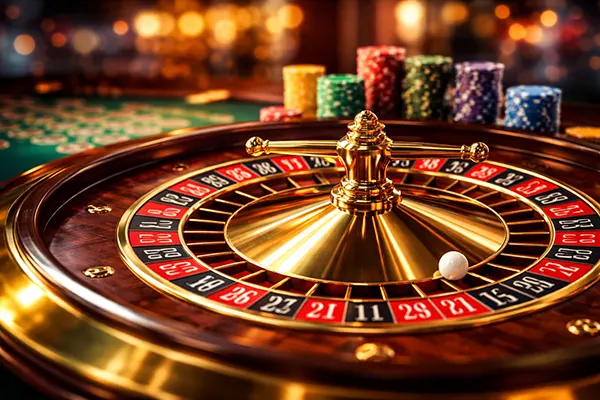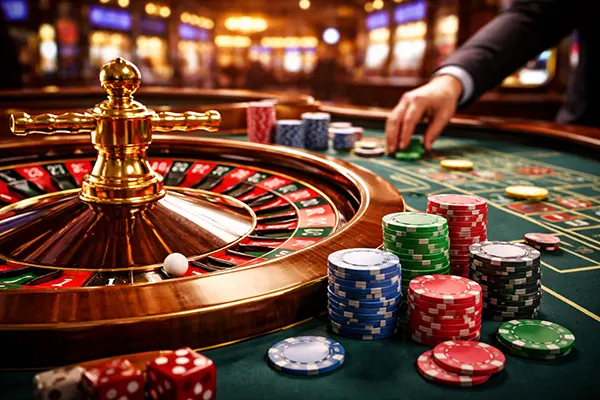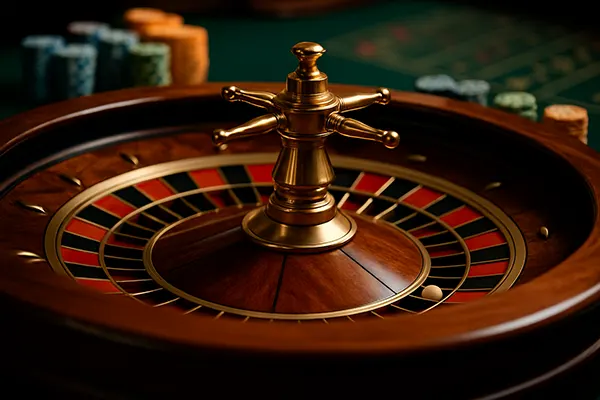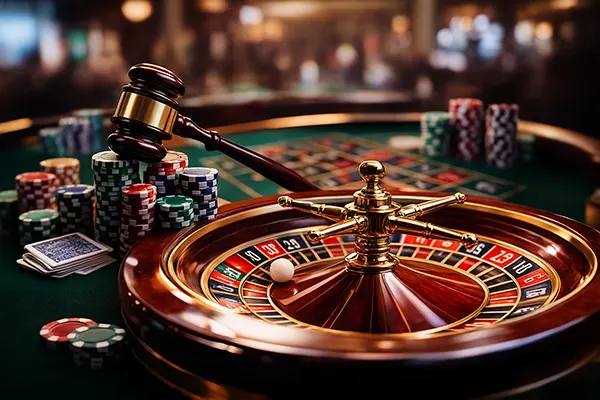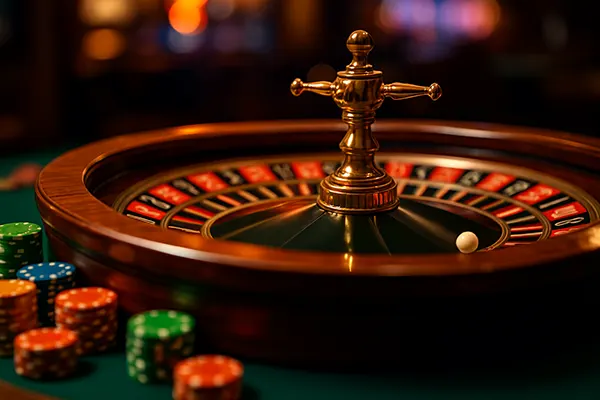
Scientific Perspective: Why Roulette is Considered the Fairest Game in the Casino
Roulette, one of the most iconic and enduring casino games, is widely regarded for its fairness. The science behind this perception stems from its simple structure and reliance on pure chance, which gives it a unique position in the world of gambling. Unlike games such as poker or blackjack, where players’ skills can influence outcomes, roulette operates on principles that make it one of the most straightforward yet thrilling games available. In this article, we explore the reasons why roulette is perceived as the fairest game in the casino and examine the factors that contribute to this belief.
The Basic Mechanics of Roulette
Roulette’s gameplay is incredibly simple, which is one of the reasons it is considered fair. The wheel consists of 37 or 38 slots, depending on whether you’re playing the European or American version. Each slot is numbered, and the ball lands in one of these slots after the wheel is spun. The outcomes are purely random, as they rely entirely on the physical properties of the ball and the wheel. No player’s actions can influence the result, making it a game of chance rather than skill.
This randomness is a key factor in its fairness. In a game like poker, skill plays a huge role, and players’ decisions can significantly impact the game’s outcome. However, in roulette, there is no strategy that can alter the wheel’s natural course. Every spin is independent, with no memory of previous spins, ensuring that each player has the same chance of winning each time the wheel is spun.
The fairness of roulette also comes from its transparency. Players can easily see the wheel spin, observe where the ball lands, and know that there is no hidden manipulation involved. This level of visibility reinforces the belief that the game is fair and trustworthy, making it a favourite among casino goers worldwide.
European vs. American Roulette: A Comparison
Although both versions of roulette share the same basic gameplay mechanics, there are key differences between European and American roulette that can impact the fairness of the game. The European version features 37 slots, with one zero (0), while the American version has 38 slots, with both a zero (0) and a double zero (00). This additional slot in the American version increases the house edge, making it slightly less fair compared to its European counterpart.
The house edge is the advantage the casino has over players, and it is a critical factor in determining how fair a game is. In European roulette, the house edge is 2.7%, whereas in American roulette, the house edge jumps to 5.26%. This makes the European version a better choice for players looking for a fairer game, as the odds of winning are slightly higher.
Many players argue that the fairness of roulette is directly related to the house edge. A lower house edge means that players’ bets have a better chance of paying out, making the game feel more equitable. Despite these differences, both versions of roulette remain popular, and their simplicity and randomness continue to make them staples in casinos around the world.
The Role of Probability in Roulette
Another reason why roulette is considered fair is the role that probability plays in the game. Every bet in roulette is based on a fixed set of probabilities, which remain constant no matter how many times the wheel is spun. For instance, the probability of the ball landing on any particular number in European roulette is 1 in 37, while in American roulette, it is 1 in 38.
These probabilities are easily calculated, and they apply equally to every player. This mathematical certainty creates a level playing field, where each participant has the same odds of winning, regardless of their experience or skill level. For many gamblers, this element of fairness is what makes roulette appealing: there is no ambiguity or uncertainty about the chances of winning.
Moreover, the fairness of roulette is reinforced by the fact that the game operates independently of any player’s actions. While other casino games, such as blackjack, are influenced by strategy, roulette’s outcome is purely dictated by chance. This provides a sense of security for players who enjoy knowing that their success or failure is purely a result of luck, not skill or manipulation.
The Influence of Random Number Generators in Online Roulette
With the rise of online casinos, many players now enjoy roulette in a digital format. In these cases, the randomness of the game is ensured by the use of Random Number Generators (RNGs). These algorithms produce results that mimic the randomness of a physical roulette wheel, ensuring that every spin is completely unpredictable.
The use of RNGs is a key reason why online roulette is considered just as fair as its land-based counterpart. These systems undergo regular audits and tests to ensure that they meet industry standards for fairness and randomness. Reputable online casinos display certificates from independent testing agencies, such as eCOGRA or GLI, which further assures players that the game is being conducted fairly.
RNG technology has also helped make roulette more accessible to a global audience, as players can now participate in the game from the comfort of their own homes. Despite being a digital experience, online roulette maintains the same fairness and unpredictability that has made the game so beloved in physical casinos.
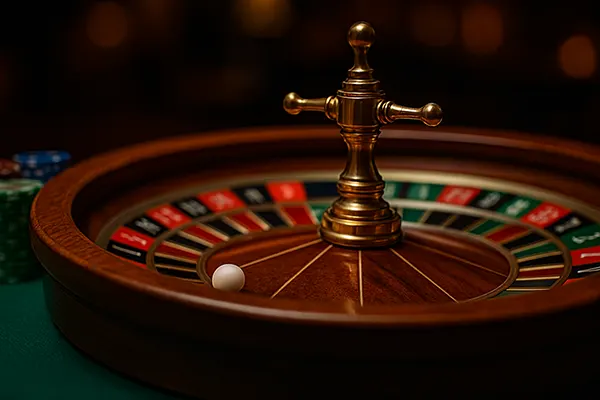
The Psychological Aspect of Fairness in Roulette
While the mechanics of roulette are inherently fair, there is also a psychological aspect that contributes to the game’s perception as being equitable. Players tend to enjoy games where the outcome feels unbiased, and roulette delivers on this front. The fact that no player has control over the result creates a sense of equality, making it more likely that players will believe the game is fair.
In contrast, games that involve skill, such as blackjack, may create a sense of unfairness among less experienced players. When players are aware that more experienced opponents have an edge due to their knowledge of strategy, it can create feelings of resentment or frustration. Roulette, on the other hand, levels the playing field by ensuring that every spin is a matter of chance, regardless of who is playing.
The fairness of roulette also helps foster a sense of excitement among players. Because everyone has the same odds, there is a shared sense of anticipation as the ball spins and players wait to see where it will land. This communal experience, coupled with the simplicity of the game, helps cement roulette’s reputation as one of the most equitable casino games available.
The Impact of Transparency and Casino Reputation
Transparency plays a significant role in establishing the fairness of roulette, especially in modern casinos. Players are more likely to trust a game when they can easily observe how it is played. In physical casinos, players can watch the dealer spin the wheel and see where the ball lands, which adds to the sense of fairness.
In online casinos, the use of live streaming technology allows players to experience the game in real time, further enhancing the feeling of transparency. Additionally, casinos with strong reputations for honesty and fairness often publish their return-to-player (RTP) percentages for roulette games, allowing players to understand exactly what to expect when they place their bets.
This transparency is essential in building trust with players, ensuring that they feel confident in the fairness of the game. It also encourages players to return, knowing that they can expect a fair and honest gaming experience each time they play.
Conclusion
Roulette’s reputation as the fairest game in the casino is built on a combination of factors: its simple mechanics, reliance on probability, and transparency. Whether played in a land-based or online casino, roulette offers a level playing field where every player has an equal chance of winning. The absence of skill-based elements and the game’s reliance on random outcomes contribute to its fairness, making it a beloved choice for many gamblers around the world.

